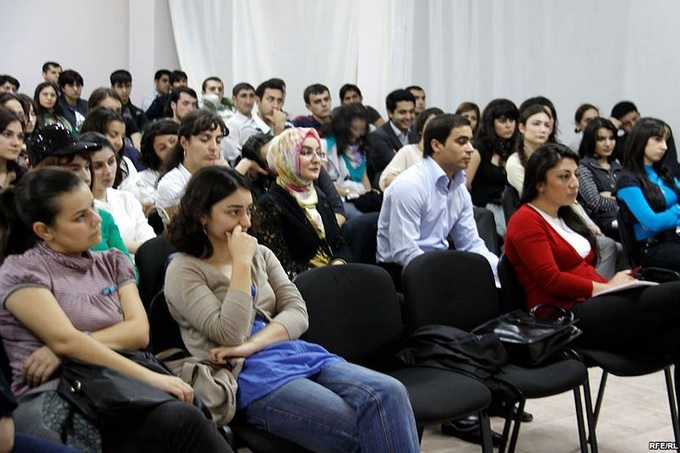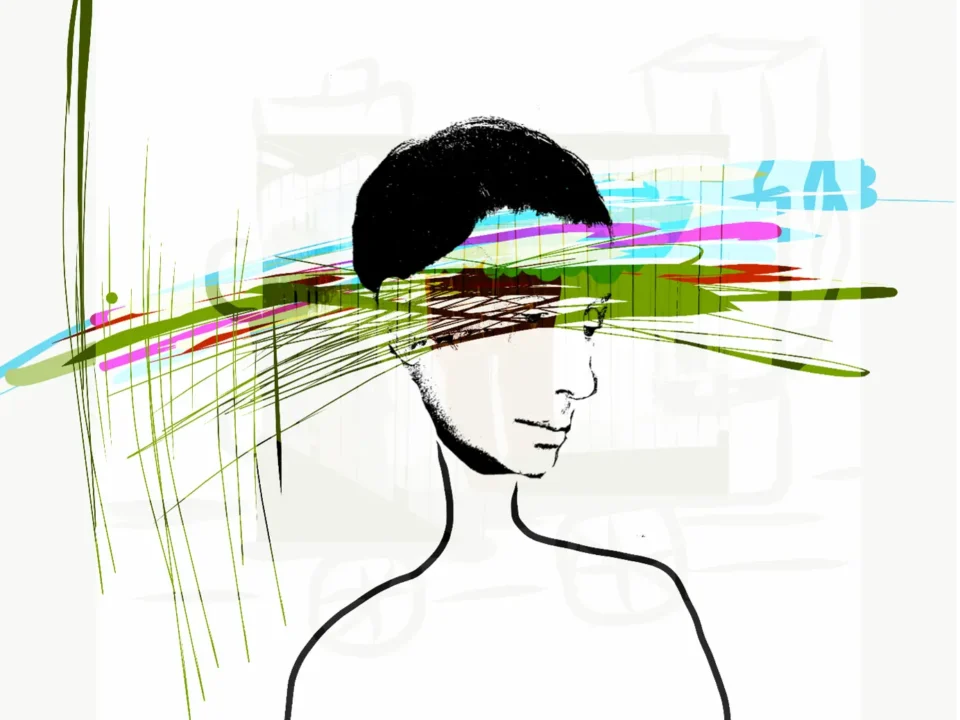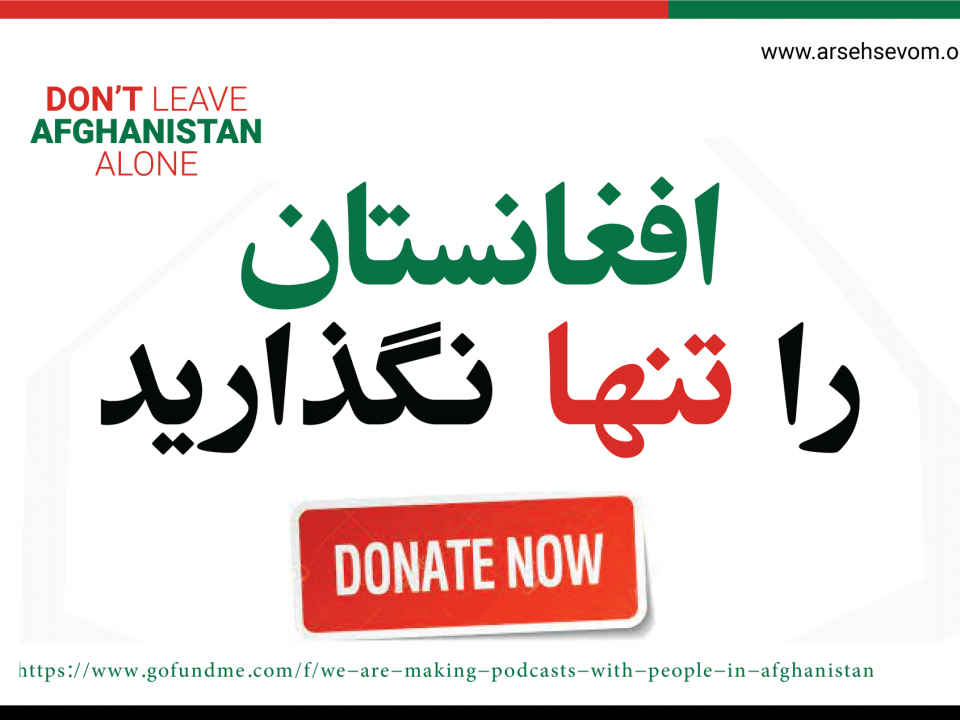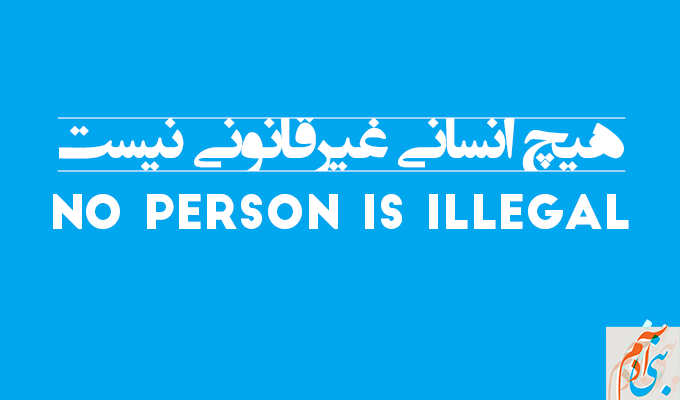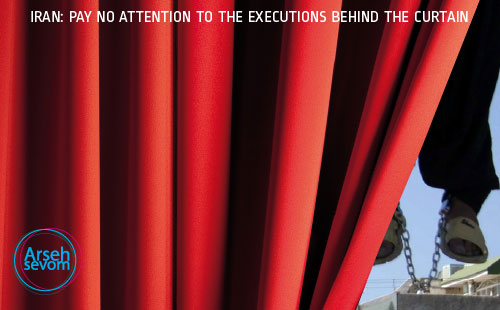
#Iran — Has the Time Come for a Thaw in Relations with Its Own People?
October 9, 2013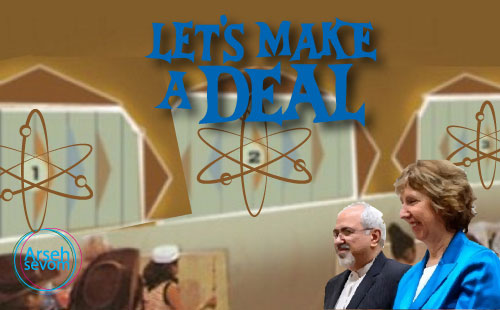
#Iran: Let’s Make a (Nuclear) Deal
October 21, 2013Arseh Sevom — In the first of a two-part article documenting his conversation with Azeri opposition member “O.”, Arturo Desimone uncovers a movement struggling to reclaim its heritage of critical thinking. It does this through education, translations, and social movements. After ninety years under Soviet Rule followed by authoritarian rule rife with human rights abuses, O. describes a society in need of reconnecting to its own culture and in learning again to question, think critically, and create its own Enlightenment. This was originally published by Open Democracy with the title Radical thinking in the Caucasus: an interview with a member of the resistance movement in Azerbaijan.
By Arturo Desimone
NOTE: The interviewee asked that we not reveal his name as several of his colleagues were arrested by the Azeri police over the summer of 2013. He will be referred to simply as O.
O. is in the opposition of Azerbaijan, a post-Soviet Republic bordering Armenia with whom it has technically been at war since 1991. The conflict has killed tens of thousands, and young Azeri men face a compulsory draft.
He is one of the participants in the Azad Fikir or Free Thought University. This is an Alternative University in the capital of Baku which for some years became the nexus of educating young members of the opposition He obtained his academic degrees and training in the West, but has now returned to his homeland. Azerbaijan is a petroleum-state internationally condemned for its repressive media laws and human rights abuses. It is led by Ilham Aliyiev who inherited the presidency from his father in 2003.
This interview was given one week before the outbreak of the Taksim Square riots in Turkey, a country Azeris look to in admiration, despite having been culturally ‘Russified’ after a century of rule under the shadow of its powerful neighbor.
Opposition in Azerbaijan
AD: What has prompted the opposition movement in Azerbaijan?
O: I might be sitting on the grass in one of the big open parks that was built over the ruins of houses. A man – not a security guard, just another civilian – will come up to me and shout, “Why are you sitting on the grass, you can’t do that!” “Well, why not?” I ask. I don’t need to bring up the fact that they were built on the ruins of the houses that were recently cruelly demolished while poor people still lived inside them. He cannot argue why not: he is indoctrinated by the official populism of our dictatorship, and its “traditional values.”
Lately more young people, thanks to the education effort in our network, are standing up to so-called “traditional values” that have nothing to do with us. Our country had universal free public education for ninety years under the Soviet Union, despite the repression that accompanied the elimination of democracy and the rise of a rigid ideology after the revolution, after the destruction of the Soviet enlightenment. People once lined up in the streets here to see theater: we produced the first opera in the Middle East. We had a great culture once. Two centuries ago we had Akundov. He was an atheist philosopher who went into exile in Tbilisi when the authorities wanted to imprison and execute him.
Then in the 1980s we had fierce critics of both capitalism and the Soviet system, our free thinkers. There were also establishment Soviet writers like Anar. People in the network that I am in, who are translating books into Azeri and favor a kind of social realism very intensely repudiate much of the official Soviet establishment authors, though there were some good aspects to them. But now the government favors our dissident writers from decades ago – these same bureaucrats, often the same people who persecuted them. You know what the right analogy to this is? Joseph Goebbels listening to Beethoven at night. I love Beethoven. He was for revolution, for Enlightenment.
Living in the Ruins of a Damaged Culture
What are the traditional values the government advocates? The depth of the level of destruction of our culture, of our ability to think and reason, cannot be overstated. In the Free Thought University, our people are taught the basics: what is meant by democracy? What is a human right? How often have I heard it said by our elders, “Well I don’t want democracy, democracy means that girls will be wearing short skirts!”
No, you idiot, this is what the government tells you. These so-called traditional values are alien to our culture. There is a tyranny everywhere, on the bus, because of government propaganda: an elderly man or woman says to a youngster, stand up, give me your seat. They don’t have to thank the youth for it. I am all for kindness for the elderly, but here it becomes an extreme that is again foreign to our society. It is a small example. But if you say you aren’t well and you don’t want to give up your seat? – this is a violation of “traditional values”, and you can be condemned quite openly and publicly by the majority on the bus. What is the result? Now more and more young people are refusing to give up their seats.
Suicides and Massive Demonstrations
A tragedy happened recently. A young girl called Nilofar committed suicide. Her death is weighing on us today. Nilofar was in the network, a sympathizer who kept a blog where she posted notes criticizing the government. Police agents began interrogating her parents. Officers confronted her. Her parents did not sympathize with her for one moment, instead they blamed and humiliated her. Maybe she was humiliated by how the police had threatened or lied to her parents about her, I cannot say for sure. She jumped from a tall building. All of us are mourning her.
Recently we had the most massive demonstrations in the history of our country since the fall of the Soviets. It concerned the mysterious deaths of soldiers in the barracks on the frontlines with Armenia (all young Azeri men are subject to be drafted into the army due to the permanent war against Nagorno Karabakh, a region supported by Armenia). The government tried to doll up the dead bodies, presenting them as heroes killed by Armenians. But autopsies revealed broken ribs that had been inflicted after death. They had committed suicide and then been set up as martyrs: the government needs to fabricate martyrdoms when the morale inspired by hatred and the ceaseless war against Armenia is finally at a low ebb.
Twenty thousand people signed up – for the Facebook-event, of course – but seven thousand showed up in the streets and demonstrated.
[Here O.quotes some lines in what he admits is his own very awkward English translation of Gunel Movlud, a young woman who is one of the Azeri poets in the opposition network ]
“Tomorrow,
we will feel the sincerity of the streets
by the amount of faces we recognize in them
Tomorrow,
the burden of broken cutlery falling onto the floor
will be so loud that it will exhaust us”
This was unimaginable ten years ago for our dictatorship who was used to a stupid populace, used to being able to disperse masses and beat people in the streets. It is thanks in part to our network, to the solidarity system, and to seven of my friends who are now in prison. It is thanks to Azak Fikir, our alternative school called The Free Thought University, which is the only healthy educational institution in our country, which didn’t stop the government from closing it down a month ago [Editor’s note: June 2013].
Free Thought University Closed
AD: How did they close it down?
O: We showed up one day and there was a sign saying that the government had sealed off the area of the Free Thought University of Baku, and if any of us violated the mandate they would drag us into court forever.
We had a popular lecture series, which we recorded – perhaps you can get an idea of it here – a little like Ted Talks, although I hate TED Talks! TED Talks are to me the ultimate end of capitalist education, the ”success-story” that bankers and managers might tell, about success and why unsuccessful people always become leftists.
The idea behind our lectures is bringing an activist to speak about, What is it like to be an actor in Azerbaijan today, a lawyer to speak of what this means, or to give a lecture on Republicanism, on the subject of What is a Human Right? Our best lectures were probably by the emerging Azeri writers and novelists, like the well-known Seimur Baijan. We record these and put them on the website.
But now Azad Fikir is closed: anyone entering the building is up before the courts. We were too successful. People in the network who were too daring are in jail. The rest of us in the network are now concentrating on our printing presses: we translate books into Azeri. Recently I read Stephan Zweig, who I am translating. Many in the network have voluntarily translated Marquez, Kafka, and Bertrand Russell‘s books, among others.
Our Resistance Cannot be Postmodern
The fact is, we have to create something from zero – let me try to explain. For example, we got hold of an old translation of a Kant essay and everyone understood what they were reading, the concepts were quite clear to them. But would they understand Michel Foucault‘s criticism of Kant’s Enlightenment? Very few would understand it. The translator of course hopes otherwise. Would they understand Habermas? Heidegger? As a society, Foucault, sadly, cannot be a subject of discussion, because without understanding, without living through it, the despair and disillusionment of modernity, people cannot yet grasp this criticism.
In terms of dress, consumption, technology, yes, we have a modernity. We have a lot of traits of bourgeois lifestyle in the city center. But an average middle class person cannot afford to spend more than half an hour in the city center.
AD: Why’s that?
O: Gradually they are forcing cheap pubs and tea-houses and anywhere social life takes place to the limits of the city, there is a fight for the city center. But many of our people fail again to understand it: they are told it is development. Oh, look at it, it is beautiful, people will say. Yes, but can you go and sit there? A cup of tea for seven euros. They don’t realize that we are also engaged in a geographic battle for the city. Seven euros for a tea, prices like in Paris and Moscow. Who the hell can afford it?
I know who can. The bureaucrats, businessmen and foreign investors, people who work at foreign companies like I do. Shop owners, hotel owners—they have created this area basically for themselves.
“I Was a Radical Nationalist”
AD: Did you undergo some kind of transformation before deciding to become part of the opposition?
O: In 2005 I was a radical nationalist. I was for (Azeri) Turkish nationalism. I still keep up my book collecting of Turkish racist, romantic-nationalist poetry, with its lines that go like this: “I am seeking day and night for an Armenian, to cut off his head, to cut off his ears, hang it on my neck, and sing songs to the Great Ataturk.” These are poems by the racist writers of the Turkish nationalist movements, they reinvented their legends: [ More poetry, this time, in a tone of rueful self-mockery]
Oh, I see the white wolf,
which came down from the mountains
and led the armies of the Great Turkish Khans
Oh The Great Tamerlane and The Great Babur shah, who invaded from India to Finland, Kublai Khan, all these great nations of Turkey, the Mighty Ottomans…
I used to memorize this crap! Then one day I woke up and asked myself, what kind of bullshit is this? Since then I have sought learning, an Enlightenment of sorts. Many factors helped me along the way: reading, studying abroad for some years, travelling. But especially the people I met, both abroad, and through the network at home, emerging writers, poets and political theorists. I emphasize the word ”emerging!” We are basically in a position of having to create something from zero. In the way people dress and consume and videos they watch, yes, they, we, are very modern. In our mindsets we do not yet have modernity, which I would define in its positive sense as critical thinking.
Towards a New Enlightenment
When I refer to ‘modernity’ or ‘enlightenment’ I do not mean what is described in Foucault’s criticism. My work here and now is in the department of a form of education and pedagogy that will help us all, me included, to develop better tools for resisting oppression. Our work is to help us reflect on our society and country so that once dramatic political and economic changes get under way, we will know what to do and how to take charge of the country afterwards in order to build a free and radical society. The project of enlightenment will provide the new young activists and intellectuals who are capable of challenging the system.


